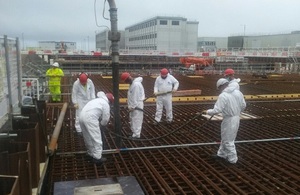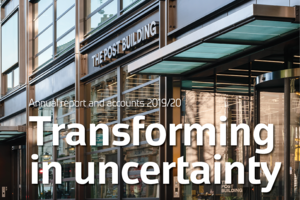Mr Chairperson,
The UK warmly welcomes the Deputy Minister for Foreign Affairs to the Permanent Council and thanks him for outlining the priorities for Sweden’s 2021 OSCE Chairpersonship. Please be assured of the UK’s full support for the agenda you have set out today.
The UK remains a strong proponent of the OSCE and we believe it has much potential. The organisation remains a critical multilateral institution for European and Euro-Atlantic security. The current COVID-19 pandemic has brought unprecedented additional challenges to the organisation and to the OSCE region. It has also required us to think and work differently. On this, we thank the Albanian Chair for his leadership and we welcome Sweden’s intention to continue and build on these these new and more sustainable ways of working.
Yet, Mr Chairperson, we are deeply concerned that in only two days time the Secretariat and and autonomous institutions will be leaderless. This is troubling at a time of global pandemic when continuity should have been paramount.
We support your focus on the OSCE’s comprehensive approach to security, which must remain at the organisation’s heart and form the basis of everything we do.
You are right to attach the highest priority to conflict resolution. Russia’s ongoing aggression against Ukraine remains one of the biggest security threats facing the OSCE area. We reiterate our call on Russia to end its illegal annexation of Crimea, stop fuelling the conflict in eastern Ukraine and ensure that the OSCE Special Monitoring Mission is able to access the entire territory of Ukraine, in accordance with its mandate. This conflict must continue to command our full attention – we owe this to the millions of Ukrainians who have been affected by it.
We also owe it to the people affected by protracted conflicts in the OSCE region to redouble our efforts to find peaceful solutions, in full respect of OSCE principles and commitments. We cannot be content with a situation where civilians find themselves at risk from shelling when tensions escalate, as we saw at the border between Armenia and Azerbaijan this week. Where Georgian civilians continue to be detained arbitrarily in the Georgian breakaway regions of South Ossetia and Abkhazia. Or, when the lives of ordinary Moldovans are disrupted by restrictions on crossing the “internal boundary line.”
We look forward to marking the 10th anniversary of Ministerial Council Decision 3/11 – an opportunity to recognise the excellent work done by the OSCE’s field missions, autonomous institutions and Secretariat as well as to reflect on how we might strengthen and make better use of the OSCE’s impressive conflict cycle toolbox. A comprehensive approach to security means upholding OSCE principles and commitments and preventing and challenging abuse of power.
Sweden will assume responsibilities of the Chair thirty years after the Paris Summit, which our predecessors described as a time “for fulfilling the hopes and expectations our peoples have cherished for decades” including a “steadfast commitment to democracy based on human rights and fundamental freedoms.”
We recognised in Paris in 1991 that respect for human rights and fundamental freedoms is an “essential safeguard against an over-mighty State. Their observance and full exercise are the foundation of freedom, justice and peace.”
As you set out, human rights and fundamental freedoms are challenged across the OSCE region. The UK aligns with the Swedish steadfast approach to the their promotion and protection.
I commend Sweden’s focus on Women, Peace and Security. It is well known that the meaningful participation of women brings more informed decision-making, more sustainable results on the ground, and is key to achieving durable peace. At the OSCE, we must do better. We must implement UNSCR 1325. We must ensure that women are represented among OSCE mediators at all levels in the relevant formats related to conflicts.
We also appreciate the planned focus on women’s economic participation recognising the particular economic vulnerabilities women face, including during the pandemic.
Ensuring a society where individuals enjoy the same opportunities, rights, obligations and security regardless of their gender is not only the right thing to do – it benefits all of us. Gender equality is fundamental to lasting poverty reduction, and to building prosperous, resilient economies and peaceful, stable societies.
We will work with you too to ensure that the OSCE’s Confidence and Security Building Measures continue to operate effectively to reduce the risk of armed conflict and of misunderstanding or miscalculation of military activities. We must find a way to make some meaningful progress on Vienna Document Modernisation. The UK remains committed to the Open Skies Treaty.
Transnational and cyber security threats will remain challenges in the OSCE area to which we need comprehensive responses. And Corruption and environmental challenges will continue to undermine the stability of our societies.
In all of this, Sweden can rely on the strong support of the UK and we wish you all the best for your Chairpersonship.
Thank you.

